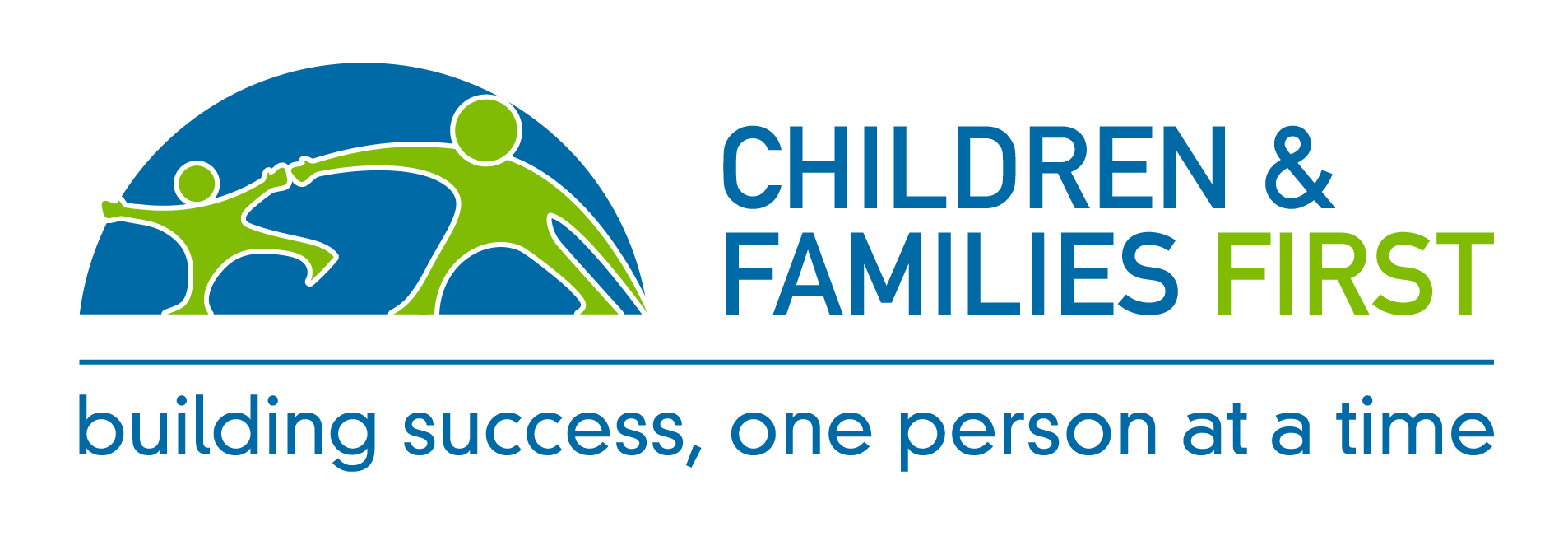LIVES WE'RE CHANGING

Children & Families First has been serving the greater Guilford County community for nearly 50 years. Change is a part of our mission — change and development in the life of a child. Through our seven-program focus approach, we work with children and families to navigate through life issues. We have seen changes over the last half century. We have seen the transformation of our expertise from “child care sitters” to “childcare educators” for School Readiness. We have witnessed the development of the state rating system for child care centers and credentialing. We have learned the scientific research and importance of early child education and brain development in a child.
Our community’s economic and social futures depend on both human and financial capital investments. Nobel Laureate Economist Dr. James Heckman has indicated that every $1 invested in early childhood programs – particularly for low-income families – saves taxpayers from $7 to $13 in future costs that include health care, special education, social welfare programs and productivity. These statistics are garnering the attention of more and more business leaders (from the U.S. Chamber of Commerce down to the local level) who are embracing high quality “Birth to Five” learning – in other words, early learning and development. And more and more bipartisan political leaders and policy makers are joining that chorus, all making the business case that robust public and private investments to sustain a high-quality early childhood education system are the best way to secure the future.
The growing body of compelling research, data and evidence has always been on the side of early learning and development. Some of the most impressive long-term gains are made by the most at-risk children. Too often, these children arrive at school unable to do what the other kids do; not because they are less able, but because they are less prepared. “Rewriting the future” for high risk children is a rising tide that lifts all ships. All of our children and families – poor and middle class, white and non-white, urban and rural – must be offered the opportunity for academic success, social mobility and economic stability.
Everyone agrees that the home is a child’s first classroom, recognizing the families’ impact on their children’s education in early learning programs. CFF Head Start/Early Head Start teachers also play a critical and invaluable role in student success, and child care providers and preschool teachers need ongoing support and training to deliver high-quality early learning for all kids.
Research shows that the unrelenting stress caused by extreme poverty can produce detrimental effects on the developing brain of a young child and impact child development and learning for years to come. This is why CFF helps families achieve economic stability and security and pursue future generation solutions that address the needs of children and families together.

WHAT RESEARCH SHOWS
Here, you can download and view a compilation of studies about how early childhood development affects future education, physical and emotional health, happiness, and life success!
THE SCIENCE OF EARLY CHILDHOOD DEVELOPMENT
Promotes an understanding of the basic science of early childhood development and informs both public and private sector investment in young children and their families.The Science of Early Childhood Development PDF
INBRIEF THE SCIENCE OF EARLY CHILDHOOD DEVELOPMENT
A series of brief summaries of the scientific presentations at the National Symposium on Early Childhood Science and Policy. Inbrief the Science of Early Childhood Development PDF
FIRST FINDING FROM THE KINDERGARTEN DATA COLLECTIONS OF THE EARLY CHILDHOOD LONGITUDINAL STUDY, BIRTH COHORT (ESLA-B)
Report from the National Center for Education Statistics, which offers more proof that early care and education experiences are a critical part of future school success. First Findings from the Kindergarten Data Collections
EARLY CHILDHOOD DEVELOPMEENT: ECONOMIC DEVELOPMENT: ECONOMIC DEVELOPMENT WITH A HIGH PUBLIC RETURN.
Research studies showing the educational, health, and economic effects, costs and benefits, and return on investment of early childhood learning expenditures; a far greater return on public investment than found with primary, secondary or post-secondary education. Economic Development with a High Public Return
THE COSTS OF DISINVESTMENT: WHY STATES CAN'T AFFORD TO CUT SMAR EARLLY CHILDHOOD PROGRAMS
This report shows how quality early learning programs, such as those offered by Children & Families First, save money now and generate future revenue for the community The Costs of Disinvestment
SMART INVESTMENT: BIG RETURNS
When at-risk children experience high quality early learning programs, they have better school, employment, and life outcomes. These results demonstrate the significant economic gains generated by investing in quality early childhood development. Smart Investment Big Returns
IMPACTS OF A PRE-KINDERGARTEN PROGRAM ON CHILDREN'S MATHEMATICS, LANGUAGE, LITERACY, EXECUTIVE FUNCTION, AND EMOTIONAL SKILLS
High quality early childhood education equips children with the cognitive skills required for success in elementary school and beyond. Impacts of a Prekindergarten Program on childrens Mathematics
WE ARE MAKING A DIFFERENCE IN CHILDREN'S LIVES
Decades of neuroscience and behavioral research have helped illustrate why early childhood development—particularly from birth to five years—is a foundation for a prosperous and sustainable society. According to Harvard University’s National Scientific Council on the Developing Child: “Chronic, unrelenting stress in early childhood, caused by extreme poverty, repeated abuse, or severe maternal depression, for example, can be toxic to the developing brain. This can lead to life-long problems in learning, behavior, and physical and mental health.”
Many disadvantaged children in Guilford County can find themselves suffering in such adverse environments, and these scenarios can ultimately impose on them little chance of future success. They then end up becoming prone to being the next school “drop-out,” “pregnant teen,” or “juvenile offender.”
For 46 years, Children & Families First has understood that investing in young children and families leads to positive outcomes for school success, language and literacy development, executive function and emotional skills, as well as for future economic productivity and responsible citizenship. Each of our five distinct yet supportive programs plays a vital role in preparing at-risk children for success in school and in life. Our programs are cost-effective, and have positive impacts even well into adulthood.
Across America, millions of disadvantaged children are without the opportunity to experience a quality early learning environment. Find out here how the U.S. Department of Education is committed to changing this.

